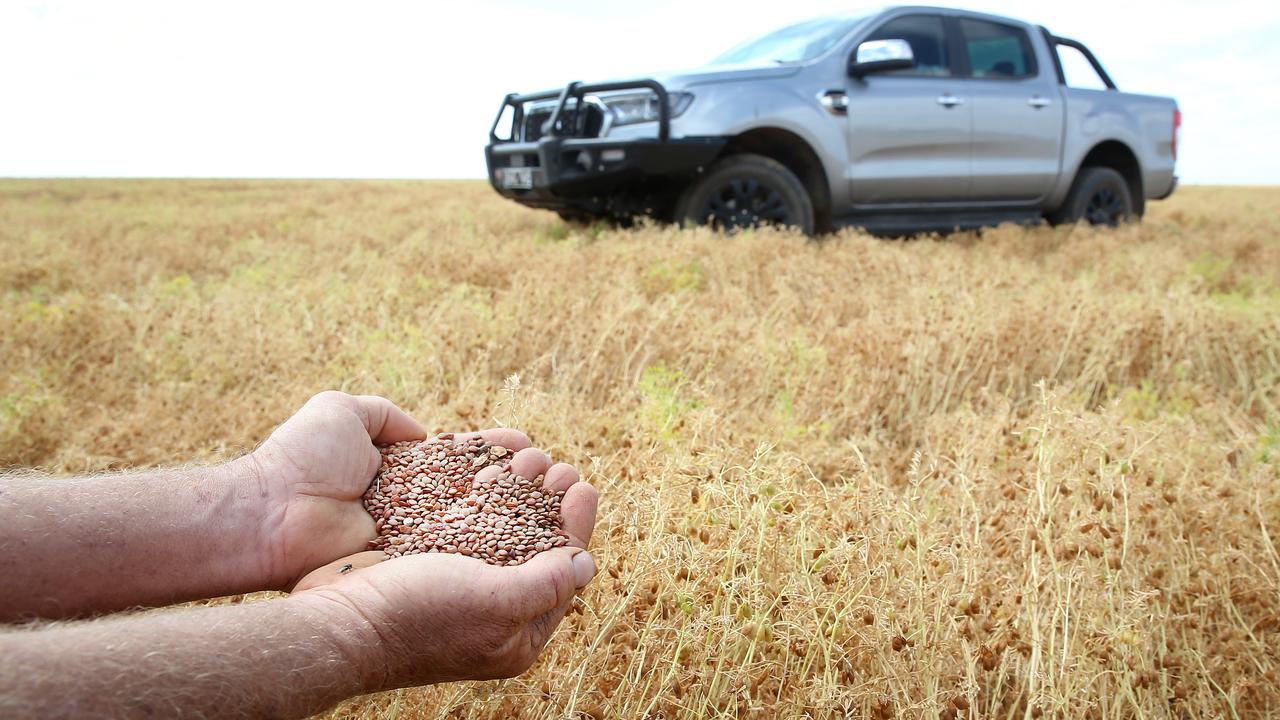‘Weaponising food’: What Russia’s blockade of the Black Sea means for grain prices
Wheat prices have entered a new period of volatility following Russia’s announcement it would withdraw from the Ukraine grain agreement.
Wheat prices have entered a new period of volatility following Russia’s announcement on Saturday it would withdraw from the Ukraine grain agreement.
Since August, the Russia-Ukraine grain deal has allowed Ukraine to export grain from its Black Sea ports.
Without the deal in place, Ukraine would be forced to export grain overland, via inefficient road and rail routes unequipped to handle large volumes.
Episode 3 agricultural commodities analyst Andrew Whitelaw said any restriction on trade from Russia and Ukraine was likely to have big knock-on effects for global prices.
“We saw the market fall, basically from about mid-May through to July as there was expectations that Black Sea grain would be exported,” Mr Whitelaw said.
If those exports were removed, “it’s basic supply and demand. If you’ve got less supply, and prices tend to go up”, he said.
Combined, Russia and Ukraine contribute a massive 30 per cent of global wheat and barley trade, and about 25 per cent of global canola trade.
It will be interesting to see how the market reacts to comments from Russia about walking away from the grain corridor deal.
— Episode 3 (EP3) (@Episode3net) October 30, 2022
This is why it is so important. Combined Ukraine and Russia are huge contributors to global trade in grains. pic.twitter.com/kliblTDgL8
Whether global price increases were passed on to Australian farmers might not be seen for another week, Mr Whitelaw said.
The Black Sea trade agreement was due to be renewed on November 19, and governments would be coming together in coming days in an attempt to renegotiate a deal.
In the meantime, there were likely to be supply shocks as vessels stopped moving through the Black Sea region.
“If you’re somebody sending a boat (to a Ukrainian port), you’re not going to do that for the interim period. Boats are going to turn around and say, ‘well, we’re not going to go and load, just in case things go belly up’. So it’s going to make a bit of a supply shock in the next two weeks,” Mr Whitelaw said.
Fertiliser prices might also be affected by volatility, but those price changes were likely to be “minimal”.
“Russia is a significant supplier (of fertilisers). But they’re not the only significant supplier. We’re not as reliant on Russia for fertilisers as we are on Russia and Ukraine for wheat and barley,” Mr Whitelaw said.
In a statement, the Ukrainian Grain Association said: “if the ‘grain deal’ doesn’t work, Ukraine will not be able to supply large volumes of agricultural products to world markets.
“UA farmers will reduce the sown areas to the optimal size that will allow them to sell their products and not have huge losses.”
This would lead to increases in global grain prices, and increased risk of famine, the association warned.
From August to October this year, Ukraine exported about 9 million tonnes of grain and oilseeds through the Black Sea grain corridor on 399 vessels, including 3.8 million tonnes of corn and 2.6 million tonnes of wheat.
The largest recipient of that grain has been Spain, followed by Turkey, Italy, the Netherlands, China, Egypt and Bangladesh.
The Ukrainian Grain Association appeals to the UN Secretary General and world leaders to find the necessary arguments for the russian aggressor who is terrorising Ukraine and the whole world to resume the Grain Initiative for safe Grain Corridor work for the next year. pic.twitter.com/QnEszP1IqZ
— Ukrainian Grain Association (@UkrGrain) October 28, 2022
Ukraine’s Infrastructure Minister Oleksandr Kubrakov tweeted on Saturday “(A) bulk carrier loaded with 40 tons of grain was supposed to leave the Ukraine port today”, but had been unable to leave port.
US President Joe Biden called Russia’s withdrawal from the agreement “purely outrageous”. US Secretary of State Antony Blinken accused Moscow of “weaponising food”.





